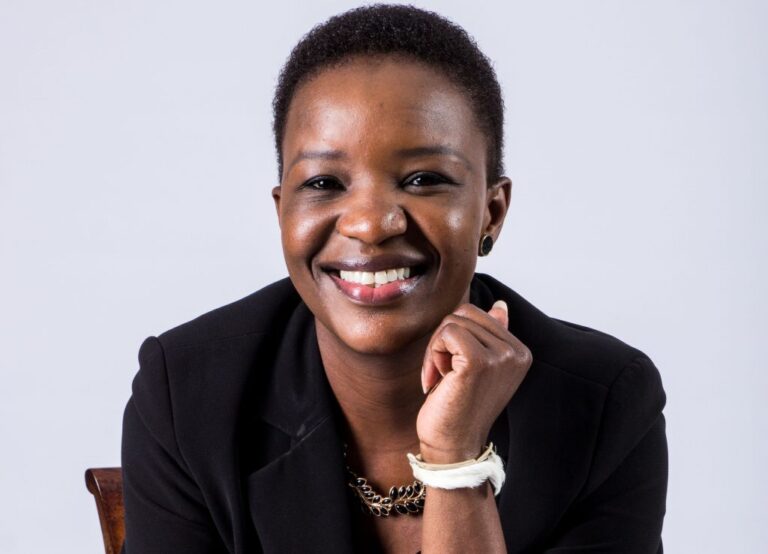The World Economic Forum last week focused attention on the risks facing the global economy. Extreme weather events driven by climate change and risks related to artificial intelligence all featured strongly. More immediately, the wars between Ukraine and Russia, and Israel and Hamas were top of mind, as well as the wave of elections this year as more than half the world’s population go to the polls. The global lodestar is a lack of certainty.
Listen: WEF 2024: Africa’s agenda
ADVERTISEMENT
CONTINUE READING BELOW
I always find the event, which several BLSA board members attended, a reality check on how the issues that preoccupy us South Africans are overshadowed on a global stage. With so many elections taking place, the risk that artificial intelligence will unsettle information flows and manipulate democratic processes is huge, from the United States to India. We should remember that South Africa too has been subjected to social media disinformation campaigns, most obviously during the state capture years. We must be ready for those tactics, now supercharged with AI, to be used in our own election process this year.
Read all our WEF coverage here.
In this context, South Africa does not get much attention. Our delegation was there to engage in global debate but also bring the South African story to the world. There is much in the global conversation that resonates. We are one of the many countries holding elections of course, but we also have a unique role in the climate change debate. We are a carbon-intensive economy, yet we have limited resilience to the extreme weather events that we can now expect. In line with the global experience, we have had significant floods, droughts and fires, but we have limited infrastructure to withstand their effects.
Listen: South Africa’s WEF 2024 game plan
Our transition plans are a good story in that global context. The rapid pace at which we are building renewable energy, driven by private sector investment, is positive. That has been enabled by regulatory reforms to open up the electricity system. Indeed, I am told that our renewable energy story was widely noted at the WEF.
That example shows there is a point to be made about opportunity amid the global context beset by risks. We do have a positive trajectory to show, underpinned by a good relationship between government and business focused on overcoming the barriers we face. But obviously, that momentum must continue, particularly the next steps to reform the electricity sector, including the establishment of an independent grid operator.
Listen: WEF: How can SA improve its trust deficit?
We must also show that electricity is not a once-off – the logistics sector is the next front for reforms to turn around the dismal performance of our port and rail infrastructure that is directly constraining economic output. We must also show we are serious about reforms to other constraints on business like access to visas.
There is no good going into a global forum telling investors they can come and invest their billions but expect to wait six months for their visas to be processed. They look at the country holistically – the opportunities are there, but they may not be enough if we don’t resolve the frictions they face.
Climate change also shows that bulk water infrastructure needs urgent investment. We must not forget that Cape Town was the first major city in the world to nearly run out of water in 2018, becoming a global example of the risks of climate change. Good progress is being made to establish a National Water Resources Infrastructure Agency that will drive the massive investment needed to ensure our national water supply is resilient, but we must maintain momentum with key enabling legislation still progressing through parliament.
ADVERTISEMENT
CONTINUE READING BELOW
Read: As Davos crowd gathers, governments urged to rein in ‘billionaire class’
We need significant flows of global investment to deliver the infrastructure we must build. However, we can’t expect our investment case to rise above the clamour over global risks. Instead, we must show that we are a part of the solution and that investment here is a good way of confronting those risks. Our infrastructure needs, including electricity, water and logistics, are clear opportunities for global investors to back the fight against climate change. We don’t have to perform miracles, but just show that we are making steady and stable progress.
We are also a part of the African story, a continent whose development needs are obvious. One topic that did get attention in Davos is the African Continental Free Trade Agreement. AfCFTA is gradually becoming a reality as countries ratify the required treaties and begin trading on the new terms. The potential benefits for the continent are enormous and I hear competition, industry, trade and competition minister Ebrahim Patel did a good job of positioning the agreement and South Africa’s role at the WEF. As I’ve written before, the agreement is an opportunity South African business must be alive to, and the world is taking note of its potential.
Read: WEF: Godongwana defends SA’s investment appeal amidst Israel case
The WEF has provided an opportunity for reflection on the global context. I hope we take from it the need to stay committed to reforms, to show we are serious about making steady progress. That is how to rise above the extreme risks that the world is grappling with and show we are a part of the solution.
Busi Mavuso is CEO of Business Leadership South Africa.

